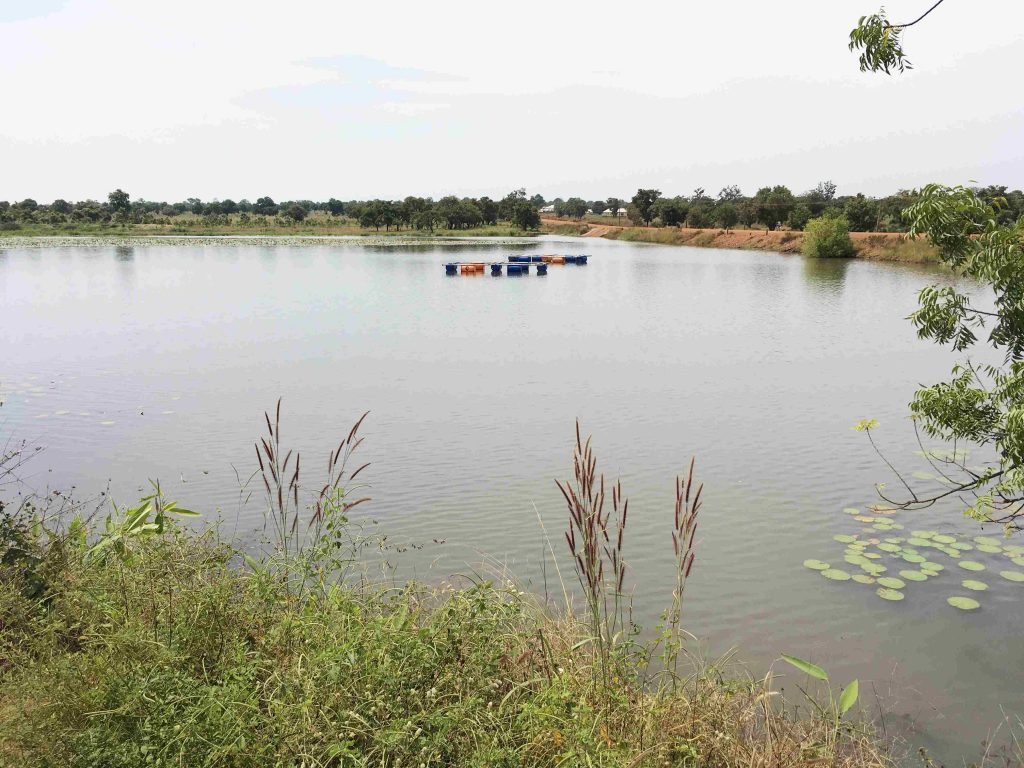Aisha Yakubu is a mother of 3 children. She is a resident of Tampion community in the Northern Region of Ghana. Aisha and many other women in Tampion directly depend on the only dam in the community for domestic and commercial uses. For the residents of Tampion, having water available all year round, is good.
“We now have water throughout the year, we can always do our washing. We also use it to cook and drink it”, indicated Aisha.
For over 3 decades, members of this community occasionally depended on silted water from the Tampion dam for their daily water needs. This dam, which is being used for many purposes including drinking and fishing, also gets almost dried up during the dry season and becomes muddy, making it difficult to get clean water for use. Changes in climatic conditions such as decreasing and increasing rainfall patterns are adversely affecting rural livelihoods in the area.

The community has a population of about 5000. Their new array of hope is a project being implemented by the Ministry of Environment, Science, Technology and Innovation (MESTI) and the United Nations Development Programme (UNDP), with support from Adaptation Fund.
The project, which aims to enhance the resilience and adaptive capacity of communities to climate impacts and risks on water resources in Northern Ghana, has supported the Tampion community to plant about 1500 trees on one-hectare land, fenced with galvanized chain wall as a buffer zone, to prevent pollution.

The buffer zone is maintained up to 50meters from the protected water body, preventing farmers from farming close to the water body, as farming activities close-by lead to sediments (sand and stones) getting into the water body. The trees in the buffer zone were planted by the local people in the community, with funding from the project.
According to members of the community, the buffer zone provided since 2017, is preventing erosion and protecting the dam.
“The acacia trees we planted around the dam are protecting the water and preventing stones and sand from our farms from going into the water. It is also making it difficult for flooding from the community to get into the dam these days”, said Inusah Ibn Hassan, Assemblyman of Tampion.
The elders of the Tampion community appreciate the buffer zone support and the many other initiatives being provided including the provision of boreholes, support for vegetable farming, fish farming, beekeeping, nurseries and agro-processing, which they believed will uplift people from poverty in the area.
The project, which is being implemented in 50 communities in 10 districts of the Upper East, Upper West and Northern Regions of Ghana, is to help protect water bodies and improve livelihoods in the three northern regions of Ghana. It is also expected to contribute to Ghana’s efforts towards the achievement of the Sustainable Development Goals (SDGs) on climate change (SDG 13); the goals on poverty eradication (SDG 1), hunger (SDG 2), and access to clean water and improved sanitation (SDG 6).
By Praise Nutakor / UNDP




